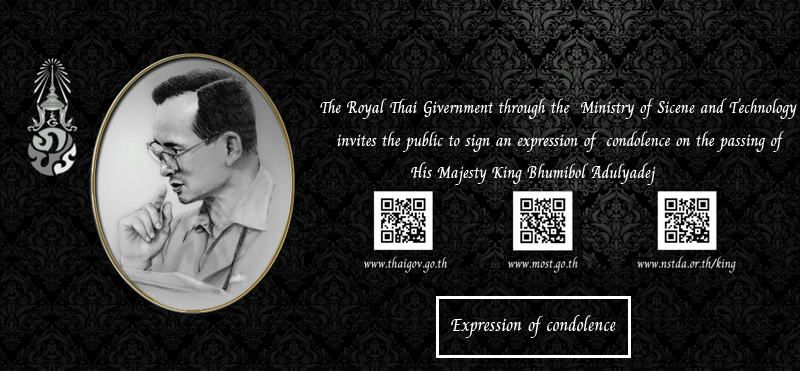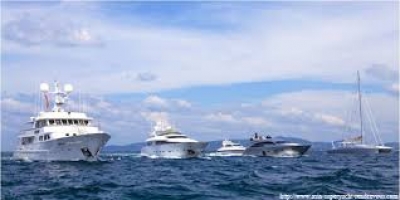Strengths of Thailand
Thailand’s development cooperation programmes are designed on the basis of our expertise which has been developed over the decades and has become our strengths of development that are ready to be shared with other interested countries.
THE KEY AREAS OF THAILAND DEVELOPMENT EXPERTISE ARE:
1) Sufficiency Economy and Development
Based on the extensive experience, His Majesty King Bhumibol has formulated what he calls the “sufficiency economy” philosophy. This approach emphasizes moderation, appropriate technology, careful management of risk and flexibility in dealing with change. This is the way to reduce the impact of global volatility on its domestic development and to ensure that the rapid change within the Thai economy did not adversely impact the natural environment or deprive the rural poor of an acceptable quality of life.
2) Agriculture Sector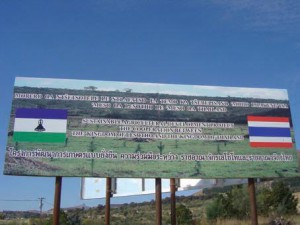
With more than half of Thailand’s population involved inagriculture, this sector has been of particular importance to natural development. Thai farmers and agricultural organizations have used research, technology and on-the-farm learning to develop their own new techniques that have helped Thailand to become one of the largest food exporters inAsia.
Farm productivity has steadily improved and better processing and storage technologies have increased the value of Thai agricultural products around the world. Thailand continues to maintain its position as the world’s leading exporter in rice, rubber, canned pineapple, and tiger prawns. It is also a globally ranked producer of fish, chicken meat, tapioca, and sugar. The agricultural expertise ranges from high-tech methods based on cutting-edge research to practical small-farm methodologies that require little investment.
3) Natural Resources, Environment and Energy
Concerns over the impact of Thailand’s rapid industrialization on the natural environment have led to the development of mechanisms and expertise in the effective management of the natural environment and care for key resources such as soil, water and renewable energy. The development of expertise in renewable energy and energy conservation is due to increasing concerns about global climate change.
4) Tourism Sector
Thailand’s emergence as the third largest tourist country in Asia and one of the highest rated tourist destinations in the world has been a result of natural advantages, local-international cooperation and learning from experience. Thesearrivals provide jobs from more than 3 million Thais and supply more than 6 percent of the GDP. Thailand, however, has increasingly developed expertise that goes beyond attracting larger and larger numbers of tourists and focuses on sustainable approaches to tourism that preserve nature and local culture while contributing to village economies.
5) Public Health Sector
Over the past 30 years, Thailand has achieved major improvements in public health as reduction of infant mortality rates, reduction of malnutrition, increase in life expectancy for both males and females, and cut in half on population growth rate through effective family planning. Moreover, severe and serious diseases such as malaria and HIV/AIDS have been sharply decreased. These successes can be an attributed to the development and expertise of Thailand in an effective Public health system that reaches out into rural areas with better health information, surveillance and treatment.
SUFFIENCY ECONOMY
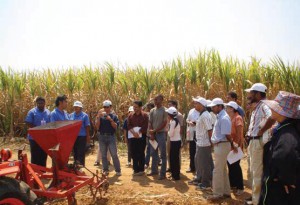
“Apart from advance technology for use in huge productions for tremendous outputs, we should seek simple technology that businesses with low capital can conveniently and practically apply.”
Speech by His Majesty King Bhumibol Adulyadej
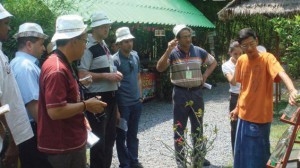
Thailand has now developed a successful approach to holistic development that is particularly well suited to rural communities seeking to provide stable, healthy lives to the poor, while can also be applied to advanced industrial and service sectors. This approach, called the “Sufficiency Economy Philosophy”, evolved from the numerous rural development projects led by His Majesty King Bhumibol Adulyadej.
This development path focuses on moderation, appropriate technology, careful management of risk and flexibility in dealing change. “Sufficiency” means moderation and provides sufficient protection from internal and external shocks. Local wisdom should be used to create innovation and technology that is appropriate, economical and simple to use.
HIS MAJESTY KING BHUMIBOL’S VIEW:
A balanced approaches, combining patience, perseverance, diligence, wisdom, and prudence, is indispensable to cope appropriately with crucial challenges arising from rapid socio-economic, environmental and cultural change occurring as a result of globalization. Development must be accomplished step by step. It should start with building economic basis for the people to have enough to live on and to eat. Once that basis is secure, more complex development can be sought.
THE PHILOSOPHY AND ITS PRINCIPLES
The philosophy entails three important principles:
1. Moderation – finding the middle ground between real needs and extravagant wants;
2. Reasonableness – understanding the consequences of actions taken;
3. Resilience through risk reduction and management – building the ability to endure shocks and adjust to external change, sometimes translated as “self-immunity”
In addition to these three components, two conditions are necessary to allow the Sufficiency Economy approach to function well. These conditions are:
1. Knowledge – making use of tested understanding and appropriate technology;
2. Integrity – honesty, tolerance, perseverance, readiness to work hard and refusal to exploit others.
AGRICULTURE AND RURAL DEVELOPMENT
Thailand has successfully utilized innovations in agricultural research and technology to develop a dynamic agriculture sector. Public and private investment in agricultural research and development has resulted in significant increases in yields and land productivity, enabling the expansion of Thai food and agricultural product exports to global market.
Thailand expertise in agricultural development which focus on research and development to raise productivity and cut costs by using new technology to bring product quality and processing up to international requirements. It encourages farmers to use less chemical fertilizer while promoting natural alternatives and organic production.
Thailand’s expertise in agricultural development can be grouped in to five categories:
1. Increasing efficiency and productivity in agriculture to improve production and reduce costs so that farmers can achieve stable and sufficient income.
2. Development of aquaculture by advanced techniques including intensive pond and cage farming, have been developed and are available, particularly for freshwater aquaculture.
3. Development of livestock production through various techniques including breeding, standard production procedures, animal epidemic control, and animal feed.
4. Value creation for agricultural commodities products to value added processing products and sought to further increase value through effective marketing and brand creation.
5. Food security – “Road Map of Food safety” set standards for food crops, livestock and fisheries to ensure production safety standardize and minimize impact to environment.
The Case of the Ban Daen Samakkhee Demonstration Project
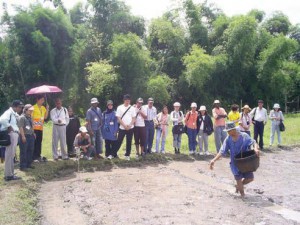
The project involved experimental plots to assist rice farmers who faced problems of insufficient water. Therefore, a pond was dug on an area of 0.48 hectares with a water storage capacity of 12,000 cubic meters.
This pond held sufficient rain water of 0.6 hectares of rice and 0.96 hectares of field crops. The farm was operated on the basis of integrated farming, which involves intercropping plants and raising pigs together with fish. The pond provides water to the rice fields, resulting in a 70 percent increase in rice yield. Water left from growing rice was used for field crops, fruit and vegetable cultivation. Fish were harvested when the pond water level was lowest. As a result, the farmers have food to consume all year round, and had a significant surplus to sell on the local market.
NATURAL RESOURCES, ENVOROMENT AND ENERGY SECTOR
Amidst the contradiction between the economic growth that hugely relies on the consumption of natural resources and the limited capacity of environment that directly relates to human livelihood, Thailand has been through both situations in which the economic boom was generated by the rapid industrialization and the degraded environment backfired at the worsening quality of living, especially in the 1980s. Over the decades, Thailand has managed to survive this crisis by seeking the balance between these two factors in order to allow the economy to grow while also attaining the environmental sustainability. Our expertise in this area is as follows:
1. Soil Development and Conservation
Soil degradation and erosion can be caused by the overuse or misuse of the land for economic purposes.Thailand has found that the vetiver grass is a superb solution to this problem as its extensive root system helps reduce the damage to soil surface and slow down the water flow in order to increase water absorption. Moreover, Thailand has developed alternative methods to resolve the soil acidity problem which is widely introduced and applied in many parts of Thailand.
2. Forest and Natural Resources Conservation
Thailand has progressed in preserving its natural resources by establishing the national parks to protect the eco-system of wildlife and plants and also to serve as recreation areas for eco-tourism. There are 148 national parks nowadays all over Thailand. Additionally, the scheme on community forests has been promoted in order to raise awareness for communities to join this effort by taking care of their surrounding forests as part of their communities and interests.
3. Development of Water Resources and Water Management
Water is a key to our survival. Our experience in water crisis has encouraged us to develop solutions based on our landscapes and lifestyle. The irrigation system to ensure the availability of water for multi-purposes and the flood protection has been developed and established in diverse forms of constructions that suit the conditions of specific areas. Moreover, the expertise in artificial rain production techniques as an initiative of His Majesty King Bhumibol has been significantly applied to alleviate the unstable rainfall problem that often affects large parts of Thailand’s rural areas.
4. Waste Management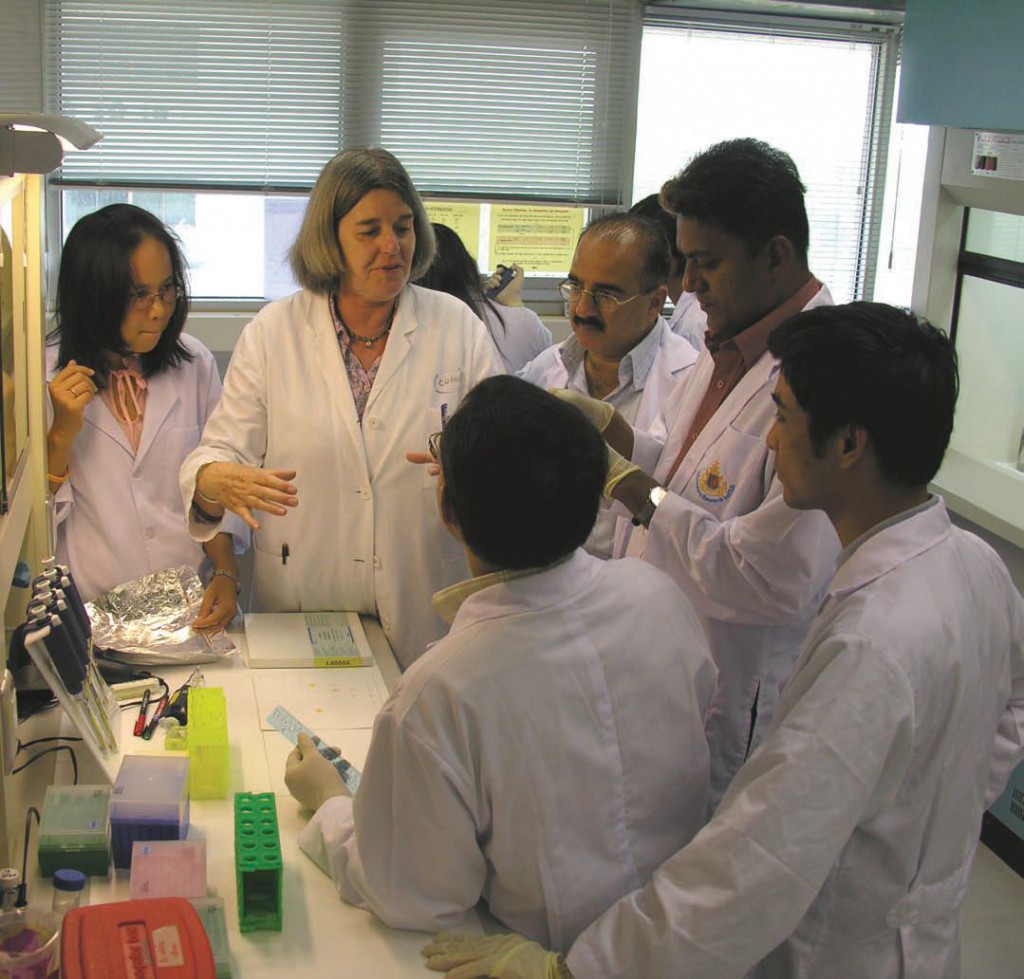
Urbanization comes along with a large burden on waste management. Thailand has developed many innovative and natural-based solutions such as the waste water filtration by using some aquatic plants that work as a natural filter of organic and heavy metals in water, or the wetlands filtration system based on the principle that draining water from one pond to another filled with such potential plants as water hyacinth will intensify the capacity of waste treatment.
5. Renewable Energy and Energy Conservation
The devastating impact of the climate change is increasingly important to the sustainable growth of the country. Renewable energy such as biodiesel has been developed to limit the omission of carbon dioxide and other greenhouse gases. Many locally-found resources have been experimented and verified as potential raw materials for producing biodiesel such as used cooking oil and agricultural waste materials.
PUBLIC HEALTH SECTOR
Thailand’s expertise in public health have been striking especially in the areas of family planning, HIV/AIDS treatment and prevention, epidemiology, infectious disease surveillance, food safety, village health volunteer programme, health and nutrition promotion and the adoption of a universal health coverage system. Various examples of Thailand’s achievement are:
FAMILY PLANNING
“More children, more poverty”, is the slogan that enhance family planning, use of contraception, and allows families to ensure sufficient finance, time and growth which reduces the financial and emotional burdens.
HIV/AIDS PANDEMIC
“100% condom use”, is a campaign that give free contraception devices, used of anti-retroviral drugs for person with HIV/AIDS. Moreover Thailand had set-up research center for AIDS expertise, and partner HIV person with community in business.
MALARIA PREVENTION
Thailandhas promoted a new environmental friendly chemical “Artesunate” that effectively kills the parasite and reduce mosquito for community-based prevention.
VILLAGE HEALTH VOLUNTEER
“Opportunityto help”, the primary health care approach with practical, community-based, house-by-house, and participatory. It is cost-effective which can reach into every village in the country.
FOOD SAFETY AND NUTRITION
Healthy Thailand with Basic Minimum Needs”, a standard set on good agricultural, good manufacturing and good hygienic to provide proper nutrition.
HEALTH POLICY AND PROMOTION
“Universal Healthcare Coverage” the scheme that boosts preventive and curative health services with cost-effective, long-term care to increase life-spans, decrease family dependency of elderly at the final stages.
PARTNERSHIP
Thailand has been active in regional, sub-regional health cooperation initiatives, engaged in South-South cooperation to improve health in a variety of dimensions.
TOURISM SECTOR
Thailand was cited for having some of the world’s best attractions in family-friendly destination, beach resorts, great shopping, golf, diving, and rich of historical and cultural site, and medical tourism. While the distinctive Thai cuisine, Buddhist religion, great national parks and traditional dance and music have added to Thailand’s tourist allure, especially the smiling friendliness of the Thai people themselves. The importance of tourism in the Thai economy has led to its expertise in:
1) Tourism Promotion
Thai tourism promotion also works with viral marketing, relationship marketing, loyalty and reward campaigns, travel promotion packages and special offers, joint promotions with restaurants, airlines and tour operations and international travel road shows. Much work is underway to develop joint tourism projects, particular with Lao PDR, Vietnam, Myanmar, Southern China, Malaysia, and Indonesia.
2) Nature-based Tourism
Thailand’s strength to boost nature-based tourism include the development of an environmentally tourism operators, green tourism destinations, conference on tourism and the environment, and a promotion campaign on “Seven Greens” of Thai tourism as: Green Hearth, Green Logistics, Green Destinations, Green Communities, Green Activities, Green Service, and Green Corporate Social Responsibility (CSR).
3) Community-based Tourism (CBT)
Thailand’s community-based tourism began in the 1990s closely associate with local communities as owners of tourist sites and resources such as waterfalls, mountains, local culture and traditions. The communities have the right to be involved in the conservation and management of resources, while earning supplemental income for themselves. Above all, the key benefit is the development and protection of community assets that leads to improved quality of life.
4) Health Tourism
Thailand’s tourist infrastructure and its high standard of medical service have enabled the country to attract visitors for medical treatment. The focus of the promotion of health tourism has been “Quality Medical Services at Relatively Lower Medical Fees.” Another part of health tourism is “wellness” services.Thailand is considered the regional center for wellness services.
5) Promotion of Thai Cuisine
An important development toThailand’s tourism has been the promotion of Thai cuisine. The taste of Thai food becomes more popular. To further promote Thai cuisine as a tourist attraction, Government agencies and private company joined together to organized various projects to enhance the global popularity of Thai cuisine, boost exports of Thai agricultural products, and provide a higher quality of culinary experiences.



